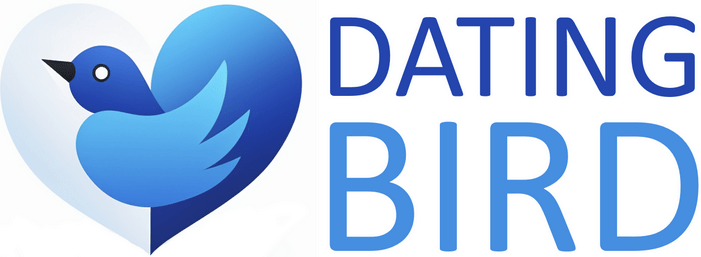Dating apps are digital platforms, often available on mobile devices, that facilitate the process of online dating. They provide a space for individuals to create profiles, match with potential partners, and communicate with them.


A Detailed Examination of Dating Apps:
In the realm of online dating, dating apps serve as the primary tools for individuals to connect with potential partners. These apps, designed with user-friendly interfaces, offer a variety of features to assist in the dating process. From profile creation to matching algorithms, they aim to simplify the search for a compatible partner.
Dating apps can be found across diverse digital platforms, predominantly on smartphones due to their portability and accessibility. Their main purpose is to provide a virtual space where individuals can interact, get to know each other, and potentially form romantic relationships.
"Dating apps present a modern solution to the age-old quest for love, transforming the dating landscape into a swipe-filled world."
The use of dating apps has become increasingly commonplace, reflecting the shift towards digital forms of communication and social interaction. They have effectively changed the way people meet and interact, making it possible to connect with individuals beyond one's immediate social circle.
In essence, dating apps are the digital equivalent of traditional matchmaking, offering an innovative and convenient approach to modern dating. They have become an integral part of the online dating scene, shaping the way individuals connect and interact in the pursuit of love.
Good Examples of Dating Apps:
In the realm of online dating, there are numerous examples of successful dating apps that have made their mark on the industry. Tinder, for instance, revolutionised the dating scene with its innovative 'swipe' feature, allowing users to easily express interest or disinterest in a potential match. Bumble offers a unique twist, empowering women by allowing only them to initiate conversations. OkCupid, on the other hand, relies on detailed user profiles and compatibility quizzes to aid users in finding suitable matches.
"These apps illustrate the diverse approaches to online dating, each with their unique features and ways of connecting people."
For those seeking more serious, long-term relationships, eHarmony and Match.com provide comprehensive personality tests and matching algorithms. Alternatively, Grindr and Her serve the LGBTQ+ community, demonstrating the inclusivity of online dating. These examples indicate the broad spectrum of dating apps available, catering to various user preferences and dating goals.
Each of these apps contributes to the dynamic landscape of online dating, providing diverse platforms for individuals to connect and find potential partners.
What Really Matters in Dating Apps? Or Not?
In the realm of online dating, the success of dating apps is defined by a set of critical factors. User Interface (UI) and User Experience (UX) are paramount, as these aspects determine the app's ease of use and user satisfaction. The security and privacy measures adopted by the app play a pivotal role in building user trust.
"The effectiveness of the matching algorithm, which is the heart of any dating app, is crucial in connecting compatible users."
The variety of features offered, such as chat functions, profile customisation, and search filters, enhance user engagement. Furthermore, the demographic reach of the app and its user base significantly influence its popularity and effectiveness. Finally, user reviews and ratings provide insight into the app's performance and user satisfaction.
- User Interface and User Experience
- Security and Privacy Measures
- Effectiveness of Matching Algorithm
- Variety of Features
- Demographic Reach and User Base
- User Reviews and Ratings
These elements collectively contribute to the overall functionality and appeal of dating apps, shaping their role in the digital dating landscape.
Why are Dating Apps so Important? Or Not?
The prevalence and significance of dating apps in the world of online dating cannot be understated. As digital platforms designed to facilitate romantic or sexual connections between users, they serve a critical role in the modern dating landscape. They provide a convenient, accessible, and efficient way for individuals to connect with potential partners that they may not have the opportunity to meet in their daily lives. In the age of technology, dating apps have become a primary tool for initiating romantic relationships and engagements. They cater to a wide range of preferences, orientations, and intentions, making them a flexible tool for finding a suitable partner. Their importance is further underscored by the sheer volume of users worldwide, with millions of individuals utilising these platforms to find connections.
"In the age of technology, dating apps have become a primary tool for initiating romantic relationships and engagements."
However, it's important to note that while dating apps are a significant component of online dating, they are not the sole means of finding romantic connections. Traditional methods of meeting partners, such as social gatherings, mutual friends, and community events, still hold value and relevance in the dating sphere.
What are the Challenges with Dating Apps?
Dating apps, despite their widespread use, face numerous challenges. Firstly, there's the issue of user safety. Given the anonymity of online platforms, users may encounter scams, harassment, or other forms of harm. Secondly, there's the matter of data privacy. With the vast amounts of personal information users provide, it's crucial for apps to have stringent data protection policies. Another challenge is the potential for superficial connections. The swiping and matching mechanisms may encourage users to make snap judgments based on appearance rather than personality or shared interests. Lastly, there's the risk of digital fatigue. The constant swiping, chatting, and ghosting can lead to burnout and dissatisfaction.
"While dating apps offer convenience and accessibility, they also present challenges such as user safety, data privacy, potential for superficial connections, and risk of digital fatigue."
These challenges highlight the complexities of online dating and underscore the importance of using dating apps responsibly.
What is the Difference Between Dating Apps and Social Media Apps?
Dating apps and social media apps, while sharing the common ground of digital interaction, serve distinct purposes. Social media platforms, such as Facebook or Twitter, are designed for a broad range of social activities, including sharing life updates, photos, or opinions, and connecting with friends, family, or even brands. They are built to foster various types of relationships, not specifically romantic or sexual ones. On the other hand, dating apps like Tinder or Bumble are designed specifically for the purpose of introducing individuals to potential romantic or sexual partners. These platforms typically feature mechanisms for users to express mutual interest before communication is initiated, a feature typically absent in general social media platforms. Therefore, while both can play a role in initiating relationships, dating apps are tailored to facilitate romantic connections, setting them apart from the wider social networking function of social media apps.
FAQ
Question: What are dating apps and how do they work?
Question: Can you give some examples of popular dating apps?
Question: What are some key considerations when using dating apps?
Question: Why are dating apps so popular?
Question: What are some challenges associated with dating apps?
Question: How do dating apps differ from social media apps?
Question: Which dating app is the most successful?
Related articles
Articles with related questions
Written by:
 Olivia
Olivia definitely has a huge collection of dating apps on her phone.
Olivia has been single for a long time and is constantly looking for a partner for life.She is primarily concerned with mobile dating apps because you can respond to new messages at any time and the use of such apps also embodies a certain lifestyle.
Olivia
Olivia definitely has a huge collection of dating apps on her phone.
Olivia has been single for a long time and is constantly looking for a partner for life.She is primarily concerned with mobile dating apps because you can respond to new messages at any time and the use of such apps also embodies a certain lifestyle.
